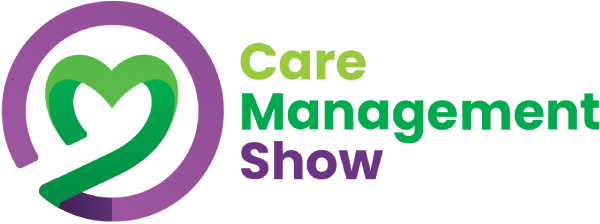Spotlight on Claudia Ramsamy, home manager, Willows Care Home (Canford Healthcare)
)
Tell us about your career so far
I came to the UK in 2009 and was working as a childminder in Milton Keynes, then I met my husband who lived in London and moved down here. I then became a technician fixing mobile phones, but after a while, the travel to work and back was too much.
My mother-in-law has been a nurse since she was 20, and she said to me, have you ever thought about care?
Willows opened in October 2014 and I was looking for a job in February 2015. Although I had no experience in care, they took me on as a healthcare assistant and trained me. At the time, we only had 10 residents!
Then I got pregnant with my daughter, and after maternity leave, I came back and was head of housekeeping for about a year. Then I was a quality and training manager for about four years – and in the interim, I did administration for the home, part-time. We had a few changes in management, and I was acting deputy manager for about a year. Then the home manager position became available. I’d never thought in a million years that I would be a home manager!
I studied for my Level 5 in Health and Social Care while working as quality and training manager, and completed this while acting as a deputy manager. I also completed a Level 7 in Human Resources while in my first year as a registered manager. And all this while managing the care home, being a wife and a mother!
Everyone is struggling with recruitment and retention at the moment – how do you find it? Any tips?
At Willows, we’ve had the best retention in the Canford Healthcare group for the second year running – everybody wants to come and work here.
I like listening, we have good communication, and everybody knows me. A ‘thank you’ and a ‘well done’ goes a long way – it’s about acknowledging people’s hard work.
Our teams look at their jobs as careers, and we look at people’s potential, so there’s always something to keep them going. I want our staff to look at us and say, I can be a home manager one day. We’re going to start inviting professionals from different areas into the home to give talks and meet our staff – people from the CQC, safeguarding, social services, diabetes nurses. It will help our staff get an understanding of what they can do.
What is the best thing about your job?
My favourite thing is the satisfaction I get when I get home, knowing I’ve made a difference not only to the residents’ lives but also my team’s lives. I look forward to getting up in the morning and coming into work. When you walk around and see the residents feeling happy, that’s what makes me proud.
What are you most proud of in your career so far?
I’m very proud that I’ve made a difference in people’s lives. For example, I had a family member who had never lost anyone before, and their parent was dying. You don’t have a script to read in that situation. You have to go by your emotions, and I’m proud that I could make a difference to them.
What is your advice for running a successful home?
Ask residents for feedback. We do surveys; every day we choose a ‘resident of the day’ and ask them questions. Then at the end of the month, we have a meeting to discuss the feedback. This is our residents’ home, and we are privileged to care for them.
Who is someone who has been an inspiration to you in your career?
My operations manager, Caron – I met her when I was head of housekeeping here, and what I liked about her was how she empowered people and always said, ‘we can do this, we will make it work together’.
I want to be like her – she has a little box in her brain, and when you need some information, you can get the key and go and find it. In an emergency situation, she has the answer.
When I feel down, all I have to do is phone her and say, ‘Caron, how do I do this?’ And she’ll just have the answer. I don’t think I would be at this stage in my career if it wasn’t for having a mentor like her.
What have you learned in your time working in care?
I’ve never been a patient person, but I’ve learned to be calm and patient. Also people skills; how to support people and listen better. During the pandemic, everybody was going through trauma, and listening to my staff really helped. We had zero deaths related to COVID, we had minimum outbreaks, and we contained it very well.
What is the best mid-shift snack?
Every day is different. Every Thursday we have a coffee morning and I generally have jam donuts! But I tend to snack on fruit – I share my office with our clinical manager and she’s a very healthy person. However, I do have a stash of hidden chocolate in my drawer!
How do you unwind at the end of a busy day?
I have a little girl, she’s seven, and we have a cat as well. So as soon as I get to the drive, I can see my cat waiting to be stroked, and my daughter running out. We love music so we do a lot of dancing and singing, and we talk about school. I don’t know if it’s unwinding really, because you’ve listened to everybody all day and come home and do more of the same!
But I love the gym, so I go after work. It helps me keep my mental health straight – sometimes when you’ve had a long day or if you’ve lost a resident, the cardio really helps with the anxiety.
What would be your message to other care managers across the UK reading this?
I want us to make a difference to health and social care sector. I want us to look at our jobs as careers, and I want our staff to be more acknowledged out in the community; because they’re not acknowledged enough. They work around the clock and go above and beyond, and I think if we all work together we can make a difference.
What would you like to ask other care managers?
How can we unite together to change things? How can we help our teams be recognised more in the community? It takes more than one provider to make a difference.
Related articles
-
With 44 years’ experience in healthcare, and having spent the past 24 years managing care homes, Bev will be the first manager of Anchor’s Skelton Court Care Home, opening in March 2023.


)
)
)
